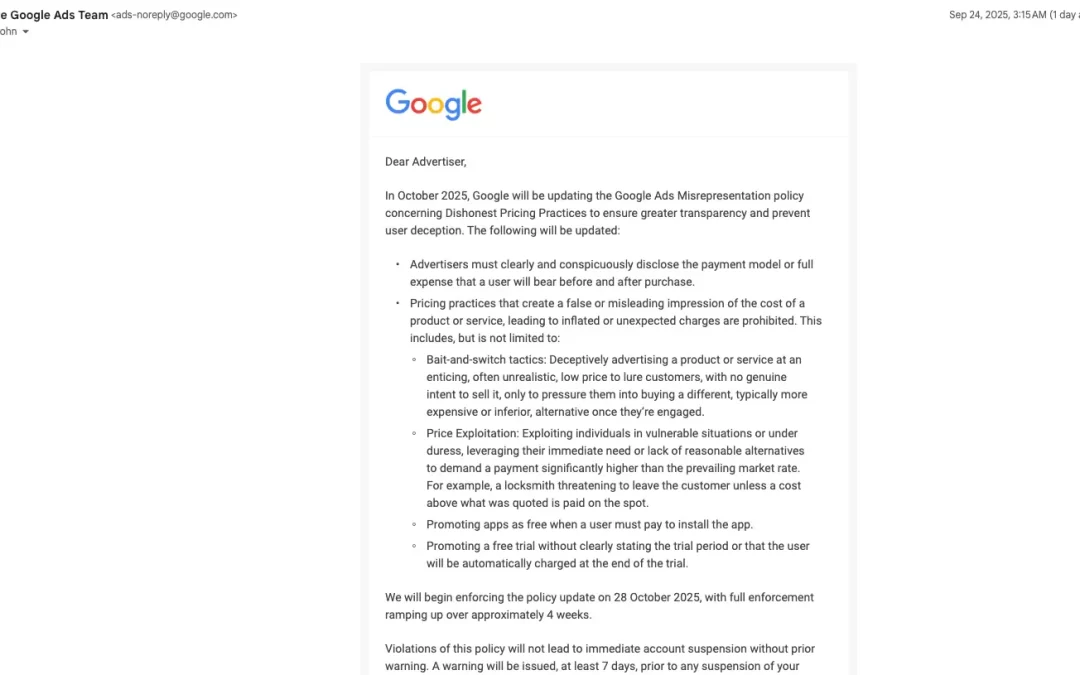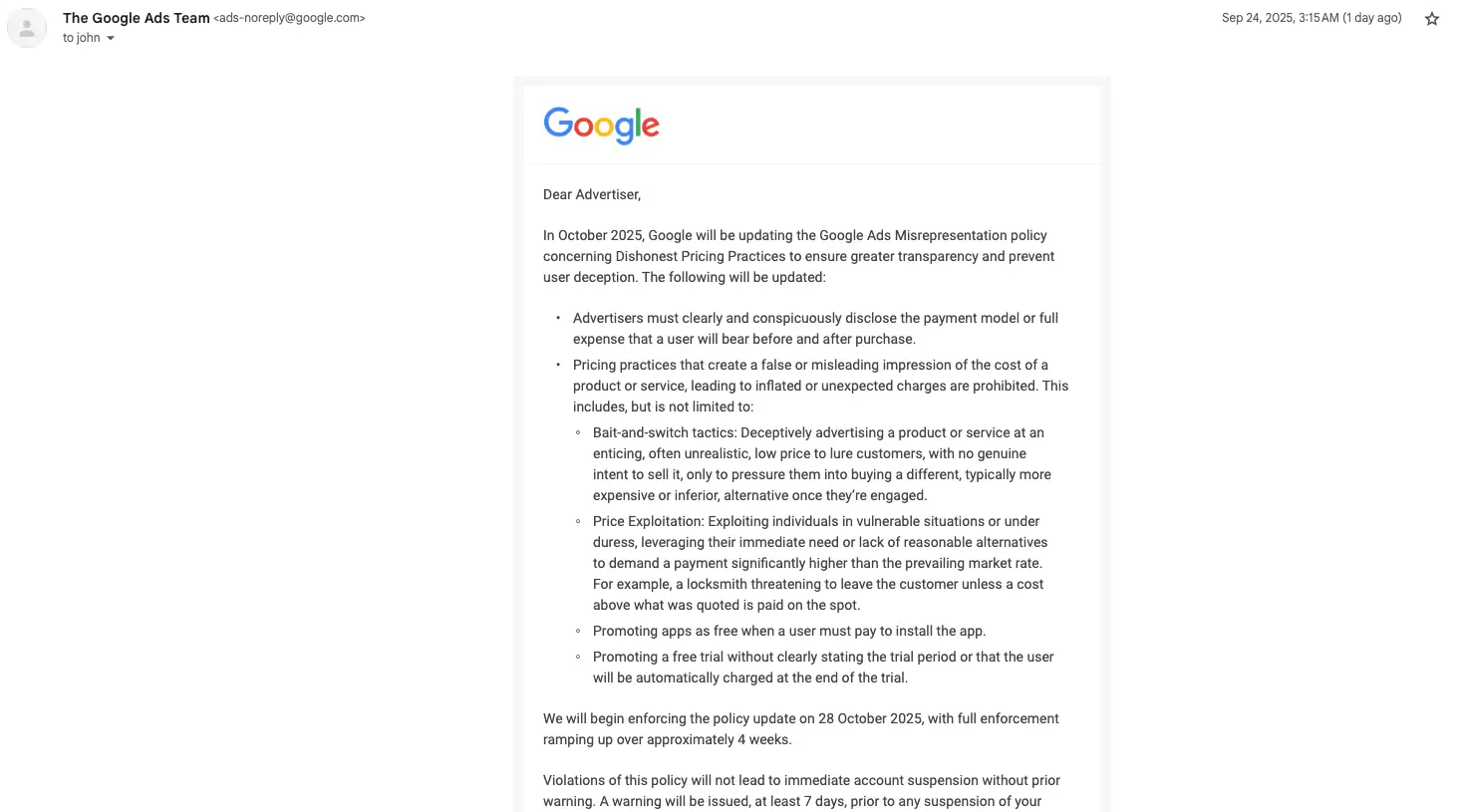On September 24, 2025, Google sent an email updating its Google Ads policy on misrepresentations regarding unfair pricing. This sentence sounds extremely bureaucratic at first. However, what lies behind it is quite significant – at least in our opinion. We interpret this update to the Google policy as follows: every Google Ads advertiser must ensure that pricing information is as accurate as possible, both in Google Ads Ads and on the promoted landing pages. It also makes no difference whether they are advertising for online store or a website that presents services.
Purpose of updating the Google Ads misrepresentation policy
In its official circular, Google clearly and unambiguously explains the reasoning and purpose for updating or tightening the Google Ads policy on misrepresentation regarding unfair pricing:
- „Advertisers must clearly and conspicuously disclose the payment model or full expense that a user will bear before and after purchase”
- „Pricing practices that create a false or misleading impression of the cost of a product or service, leading to inflated or unexpected charges are prohibited.“
These two commandments are intended to ensure greater price transparency and protect users from misleading advertising. A noble goal that we, as an online marketing agency, fundamentally support.
When does the Google Ads misrepresentation policy update take effect?
The update to the Google Ads policy on misrepresentations regarding unfair pricing will take effect in October 2025. This means there’s not much time left for Google Ads advertisers to comply with the new, updated policy. Many are probably wondering:
What can and must I do to comply with the Google Ads policy on misrepresentations regarding unfair pricing?
Our recommendations
The interpretation of exactly what needs to be done in each case is subjective. Therefore, recommendations for action cannot be universally applicable. In our brainstorming sessions, which we held immediately after receiving this email from Google, we identified the following recommendations for ourselves and our clients:
-
Review and, if necessary, change pricing policies and pricing and payment models.
Our first recommendation concerns pricing strategy and pricing policy. In our view, it is imperative to review the pricing and payment model for each individual product and service category and, if necessary, revise it in order to be able to comply with the guidelines.
Service providers, in particular, will have to give this considerable (strategic) thought, as many of them do not publish pricing information on their landing pages, sometimes work with unclear starting prices, or advertise with ad assets such as “free consultation” and similar.
What is misleading, and what is not, is not clearly defined. However, we assume that Google will enforce the updated Google Ads policy on misrepresentations regarding unfair pricing with some rigor. This means that, if in doubt, clear pricing information for each product and service must be provided on landing pages and in Google Ads.
-
Publication of prices, price tables, and price examples on landing pages
After modifying the pricing strategy and revising the payment and pricing models (per product/service), the prices must be published on the respective landing pages. Price tables that also transparently indicate additional costs and special fees are conceivable.
For more complex pricing models based on individual requirements, concrete price examples can be very useful and provide greater price transparency.
-
Revise Google Ads texts and assets
Once the landing pages have been revised and provided with clear, or at least clearer, pricing information, it is essential to take a closer look at the ad titles, ad descriptions, and assets of existing Google Ads campaigns and revise them so that no false or misleading impressions regarding pricing can arise. The extent to which existing Google Ads need to be revised is questionable. However, in our view, the following applies here too: When in doubt, it is better to be as transparent as possible, as the new policy is intended to benefit consumers.
-
Use of Price Extensions in Google Ads
Directly related to the third recommendation is our fourth recommendation: the use of the “Price Extensions” ad extension in Google Ads. We expect this ad extension to play a very important role in future due to the updated Google Ads policy on misrepresentation regarding unfair pricing.
Conclusion
The update to the Google Ads policy on misrepresentations regarding unfair pricing should be taken very seriously. And since the policy goes into effect as early as October 2025, businesses should act quickly and review their pricing policies, pricing models, landing pages, and Google Ads with regard to the new policy and revise them where necessary. We hope our recommendations can help you comply with the stricter Google Ads policy. We are happy to assist you with any questions.


